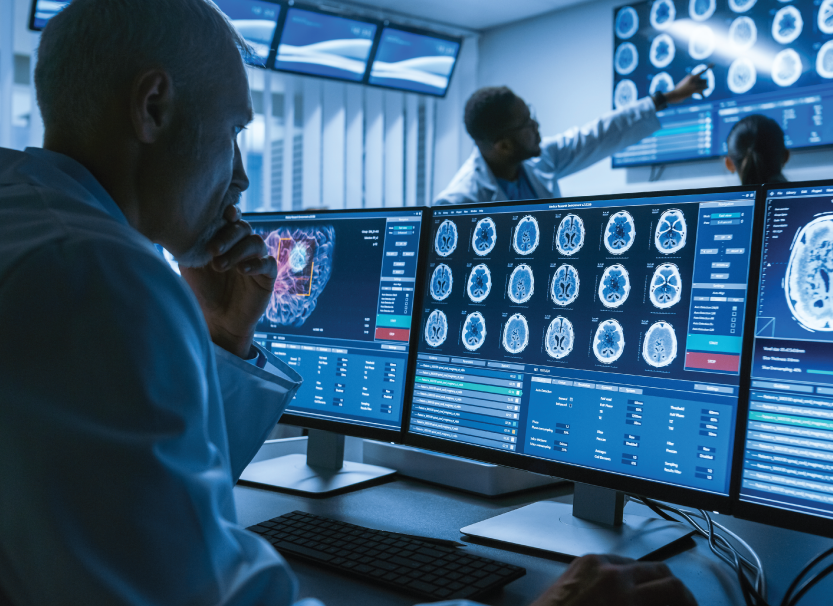European Regulator Clarifies Guidance on the Use of AI in the Medicinal Product Lifecycle
The European Medicines Agency (EMA) has published a final reflection paper on the use of AI in the drug lifecycle, which provides important insights into the expectations from the EMA to clinical trial sponsors, as well as marketing authorization (MA) applicants and holders who use AI systems. Josefine Sommer and Zina Chatzidimitriadou explain.

Investor Attitudes to Healthcare AI Technologies
Investors are eyeing up the opportunities to invest in healthcare AI as it pushes the healthcare industry into new and exciting territory. R&D is currently focused on genomic sequencing, mapping, understanding populations and the treatment of rare diseases and hereditary cancer. AI applications are fundamentally altering how such R&D is conducted, as well as changing healthcare services to improve patient experience and outcomes. The advent of AI has dramatically altered the cost of capital, with private equity firms prepared to invest substantial sums into early adopters. These evolving opportunities raise important questions.
Five Tips for Bringing a Complex Digital Health Product to Market
Bringing a sophisticated digital health product comprised of a combination of hardware and software to market can be tricky. Meena Datta and Deeona Gaskin advise on how to do so successfully by factoring in FDA marketing and reimbursement pathways, including insurers and employer-sponsored health plans.
Clinical Decision Support Software Approach Updated in the U.S. but Still Confused in Europe
The U.S. has issued final guidance on clinical decision support (CDS) software but, in the EU, the treatment is less nuanced and needs clarifying. Ioana Ratescu of Novartis and Eva von Mühlenen, Deeona Gaskin, and Zina Chatzidimitriadou of Sidley explain.
European Parliament’s Position on the AI Act Moots Significant Changes
The European Parliament’s provisional agreement on the EU’s AI Act encompasses generative AI and imposes the requirements that are applicable to high-risk AI systems onto general purpose AI. As negotiations continue, Josefine Sommer, Eva von Mühlenen and Zina Chatzidimitriadou explain.
7 Key Trends for the Global Life Sciences Industry in 2023
Sidley’s 2023 Global Life Sciences Trendspotting Report maps out seven key trends in the life sciences industry globally, and identifies some regional trends in the U.S., China, and Europe which are likely to have global ramifications during the coming year.
How to Create a More Enabling Environment for Digital Health in Europe
At our recent Digital Health App’ero, Zina Chatzidimitriadou led a discussion with key industry players Aleksandra Appelfeld of Philips and Megan Coder of the Digital Therapeutics Alliance on what changes the industry would like to see in order to make Europe more hospitable to digital health products. We set out the top five themes that emerged, and a space to watch for the next decade.
The Challenges Facing Artificial Intelligence and Machine Learning Solutions in the FemTech Space
Sidley’s Eva von Mühlenen in Geneva and Josefine Sommer in Brussels talk to oncologist Wolfgang Hackl — the founder of a FemTech startup that guides doctors in the treatment of breast cancer — about regulation, research and development (R&D), and the vast potential of artificial intelligence in the field of health technology for women. (more…)

How Artificial Intelligence Manufacturers Can Protect Themselves Against Future Negligence Claims
Elizabeth Curtin in Chicago and Jonathan Tomlin in London consider why any litigation arising over medtech that uses AI is likely to become complex. They consider how manufacturers of AI can support physicians’ medical judgments and help guard against the danger that they might themselves inadvertently become ‘insurers’ of medical outcomes.

Pharmacovigilance Considerations in the Era of Patient Centricity: Data Collected by Apps
On World Patient Safety Day, Torrey Cope in Washington, D.C., Chen Yang in Beijing, and Olivier Goarnisson in Geneva consider one big pharmacovigilance question raised by the increasingly patient-centric way in which life science companies are doing business today: How to treat the data collected by the apps provided with drugs and devices.

